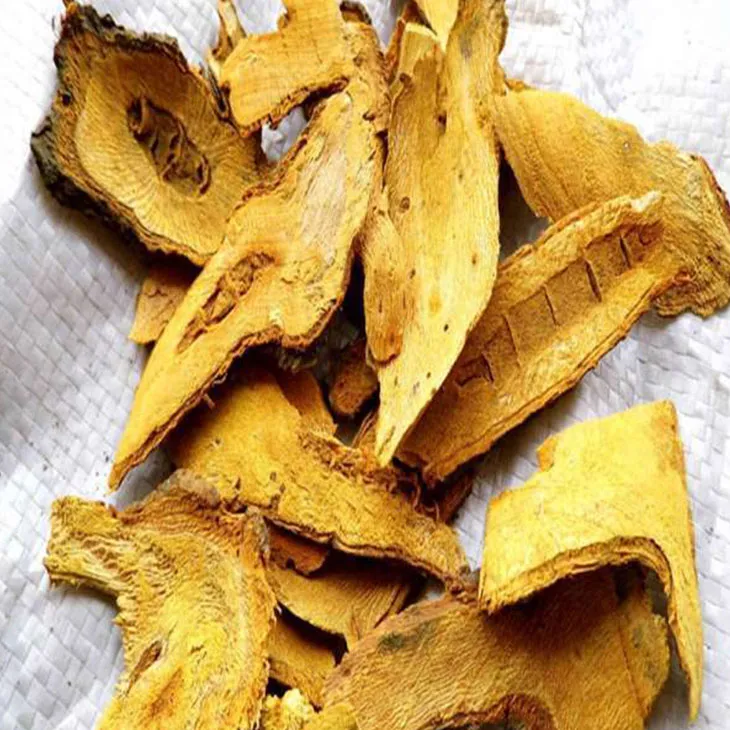- 0086-571-85302990
- sales@greenskybio.com
Use giant knotweed extract? Make sure you source from sustainable suppliers!
2024-12-15

1. Introduction
Giant Knotweed Extract has emerged as a highly valuable ingredient across a multitude of sectors. It is finding applications in the fields of medicine, cosmetics, and food supplements, among others. However, as the demand for this natural product continues to soar, the origin of the Giant Knotweed Extract has become a matter of utmost importance.

2. The Ecological Significance of Sustainable Sourcing
Giant knotweed is an important part of the ecosystem. When it comes to sourcing its extract, sustainable suppliers play a crucial role in maintaining ecological balance.
2.1. Preventing Over - exploitation
Giant knotweed has a natural growth cycle and population density that must be respected. If suppliers engage in over - harvesting, it can lead to a significant reduction in the plant's population. For example, in some regions where there is unregulated collection, the number of giant knotweed plants has been observed to decline rapidly. Sustainable suppliers follow strict harvesting guidelines. They ensure that only a certain percentage of the available giant knotweed is harvested each year. This helps to preserve the plant's ability to reproduce and maintain its presence in the wild.
2.2. Impact on the Entire Ecosystem
Giant knotweed is not an isolated entity in the ecosystem. It provides habitat and food sources for a variety of organisms. Insects, for instance, may rely on giant knotweed for nectar or as a place to lay their eggs. Birds may also use the plant for shelter or to search for insects among its leaves. When the plant is over - exploited, it can disrupt the food chain. If there is not enough giant knotweed, the insects that depend on it may decline in number, which in turn can affect the birds that feed on those insects. Sustainable sourcing helps to prevent this domino effect, ensuring that the entire ecosystem remains intact.

3. The Economic Benefits of Sustainable Sourcing
Sourcing Giant Knotweed Extract from sustainable suppliers has far - reaching economic implications.
3.1. Promoting Fair Trade
Sustainable suppliers often adhere to fair trade principles. This means that the growers and collectors of giant knotweed are fairly compensated for their efforts. In many developing regions where giant knotweed is grown, fair trade can have a significant impact on the local economy. For example, it can provide farmers with a stable income source, allowing them to invest in better farming techniques, education for their children, and improved living conditions.
3.2. Supporting Local Economies
When giant knotweed is sustainably sourced, it encourages the growth of local industries. Local processing plants may be established to extract the valuable compounds from the plant. This creates job opportunities, both in the harvesting and processing stages. Moreover, it can also lead to the development of related industries, such as packaging and transportation. In addition, sustainable sourcing can attract more investment to the region as it showcases the area's commitment to environmental and economic sustainability.

4. The Ethical Dimensions of Sustainable Sourcing
There are important ethical considerations when it comes to sourcing giant knotweed extract.
4.1. Protecting Indigenous Rights
In some areas, giant knotweed has cultural significance for indigenous communities. These communities may have traditional knowledge about the plant's uses and cultivation. Sustainable sourcing ensures that the rights of these indigenous communities are respected. It means that they are involved in the decision - making process regarding the harvesting and use of giant knotweed. For example, they may have a say in how much of the plant can be harvested and how the benefits are shared.
4.2. Environmental Responsibility
As consumers become more environmentally conscious, there is an ethical obligation on companies to source their ingredients sustainably. By choosing sustainable suppliers of giant knotweed extract, companies are demonstrating their commitment to environmental protection. This is not only good for the planet but also helps to enhance the company's reputation among consumers who are increasingly demanding sustainable products.
5. Challenges in Ensuring Sustainable Sourcing
While the importance of sustainable sourcing of giant knotweed extract is clear, there are several challenges that need to be overcome.
5.1. Identification of Sustainable Suppliers
In the market, it can be difficult to distinguish between sustainable and non - sustainable suppliers. There is currently no universal certification system for giant knotweed suppliers. Some suppliers may claim to be sustainable but may not actually follow proper practices. Companies need to do their due diligence, which may involve visiting the supplier's facilities, auditing their harvesting and processing methods, and checking for any compliance with environmental and social standards.
5.2. Cost Considerations
Sustainable sourcing may sometimes be more expensive. Sustainable suppliers may have higher costs associated with following strict environmental and social regulations. For example, they may need to invest in more environmentally - friendly harvesting equipment or pay their workers a fair wage. This can lead to higher prices for giant knotweed extract. However, companies need to weigh these costs against the long - term benefits of sustainable sourcing, such as protecting their brand reputation and contributing to environmental and social sustainability.
6. Strategies for Ensuring Sustainable Sourcing
Despite the challenges, there are strategies that can be employed to ensure sustainable sourcing of giant knotweed extract.
6.1. Collaboration and Standards Development
The industry can collaborate to develop a set of standards for sustainable sourcing of giant knotweed. This could include guidelines on harvesting limits, environmental protection measures, and fair trade practices. By having a common set of standards, it becomes easier for companies to identify sustainable suppliers. Additionally, industry associations can play a role in promoting and enforcing these standards.
6.2. Consumer Education
Educating consumers about the importance of sustainable sourcing can also have a significant impact. When consumers are aware of the ecological, economic, and ethical implications of their purchasing decisions, they are more likely to choose products that contain sustainably sourced giant knotweed extract. This can create market demand for sustainable products, which in turn can encourage more suppliers to adopt sustainable practices.
7. Conclusion
In conclusion, the use of giant knotweed extract is on the rise, but it is essential that we source it from sustainable suppliers. The ecological, economic, and ethical dimensions of sustainable sourcing are all intertwined. By ensuring sustainable sourcing, we can protect the giant knotweed plant, support local economies, respect indigenous rights, and contribute to environmental protection. While there are challenges in achieving sustainable sourcing, through collaboration, standard development, and consumer education, we can move towards a more sustainable future for the giant knotweed extract industry.
FAQ:
1. Why is it important to source giant knotweed extract from sustainable suppliers?
It is important because sustainable suppliers help maintain the ecological balance. They prevent over - exploitation of giant knotweed, which is crucial for its survival and the entire ecosystem. Also, sustainable sourcing promotes fair trade and supports local economies where it is grown.
2. How can one identify a sustainable supplier of giant knotweed extract?
One can look for suppliers who are transparent about their sourcing methods. They should have certifications related to sustainable harvesting. Also, a sustainable supplier may be involved in conservation efforts related to giant knotweed and have a good reputation within the industry for ethical practices.
3. What are the potential consequences of not sourcing from sustainable suppliers?
If not sourced from sustainable suppliers, there could be over - harvesting of giant knotweed. This may lead to a decline in its population, which can disrupt the ecosystem it is part of. It can also lead to unfair trade practices and negative impacts on local economies that depend on its sustainable growth.
4. Does sustainable sourcing of giant knotweed extract cost more?
Not necessarily. While in some cases initial investment in sustainable practices may seem to increase costs, in the long run, it can lead to more stable supply chains, better quality products, and positive brand image which can offset any potential price differences. Also, sustainable sourcing can lead to more efficient use of resources which can actually reduce costs over time.
5. How does sustainable sourcing of giant knotweed extract support local economies?
Sustainable sourcing ensures that local communities where giant knotweed is grown benefit. It provides employment opportunities in areas such as harvesting, processing, and quality control. It also promotes the long - term viability of the crop in the area, which can lead to economic stability and growth for local farmers and businesses.
Related literature
- Sustainable Sourcing of Botanical Extracts: A Case Study of Giant Knotweed"
- "The Importance of Sustainable Suppliers in the Botanical Extract Industry"
- "Eco - Friendly Sourcing of Giant Knotweed: Impacts on Ecosystem and Economy"
- ▶ Hesperidin
- ▶ citrus bioflavonoids
- ▶ plant extract
- ▶ lycopene
- ▶ Diosmin
- ▶ Grape seed extract
- ▶ Sea buckthorn Juice Powder
- ▶ Beetroot powder
- ▶ Hops Extract
- ▶ Artichoke Extract
- ▶ Reishi mushroom extract
- ▶ Astaxanthin
- ▶ Green Tea Extract
- ▶ Curcumin Extract
- ▶ Horse Chestnut Extract
- ▶ Other Problems
- ▶ Boswellia Serrata Extract
- ▶ Resveratrol Extract
- ▶ Marigold Extract
- ▶ Grape Leaf Extract
- ▶ blog3
- ▶ blog4
- ▶ blog5
-
Artichoke Extract
2024-12-15
-
Echinacea Extract
2024-12-15
-
Uridine-5'-monophosphate Disodium salt
2024-12-15
-
Angelica sinensis extract
2024-12-15
-
Saffron Extract Powder
2024-12-15
-
Red Wine Extract
2024-12-15
-
Mulberry leaf Extract
2024-12-15
-
Acai Berry Extract
2024-12-15
-
Cassia Seed Extract
2024-12-15
-
Maca Extract
2024-12-15





















